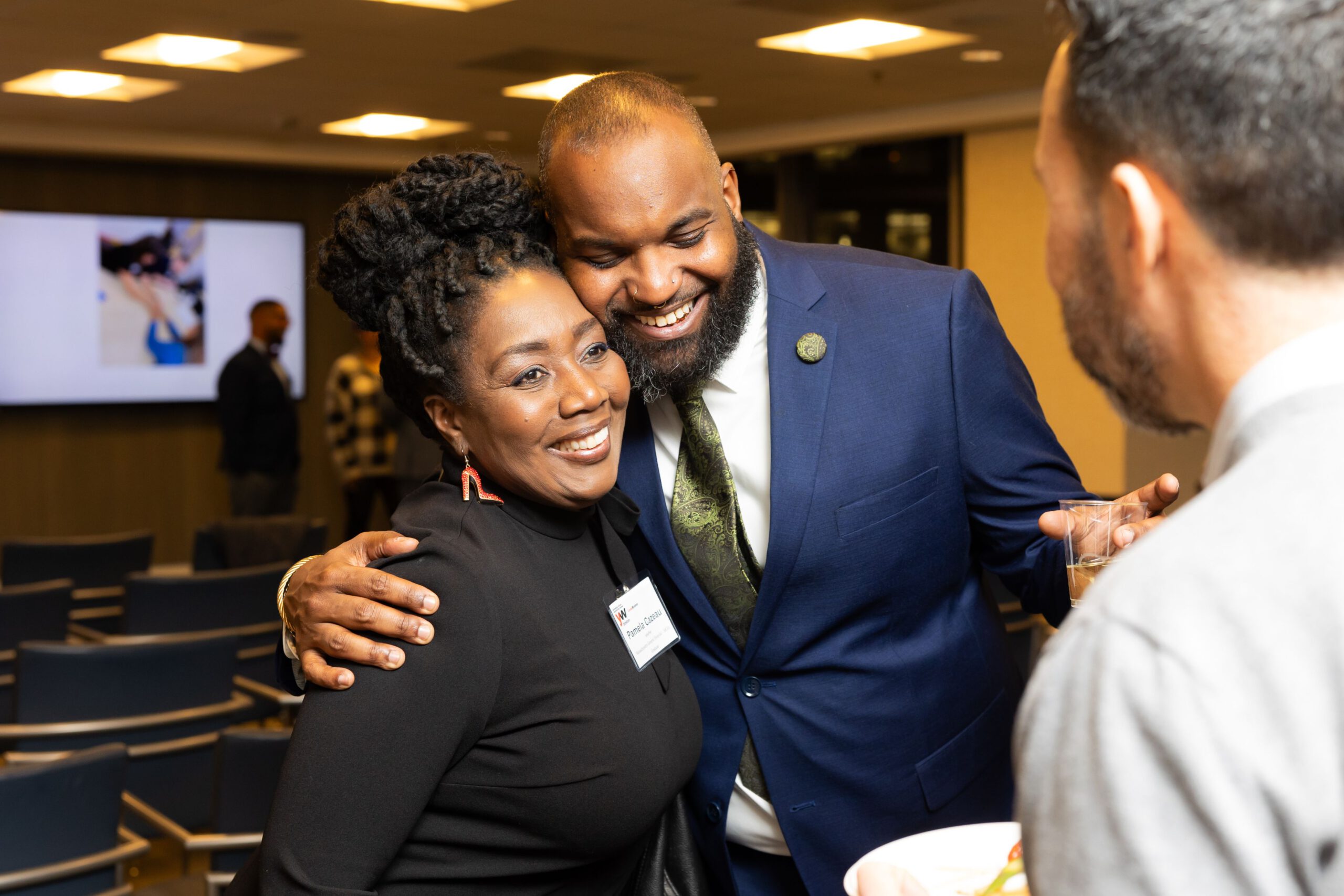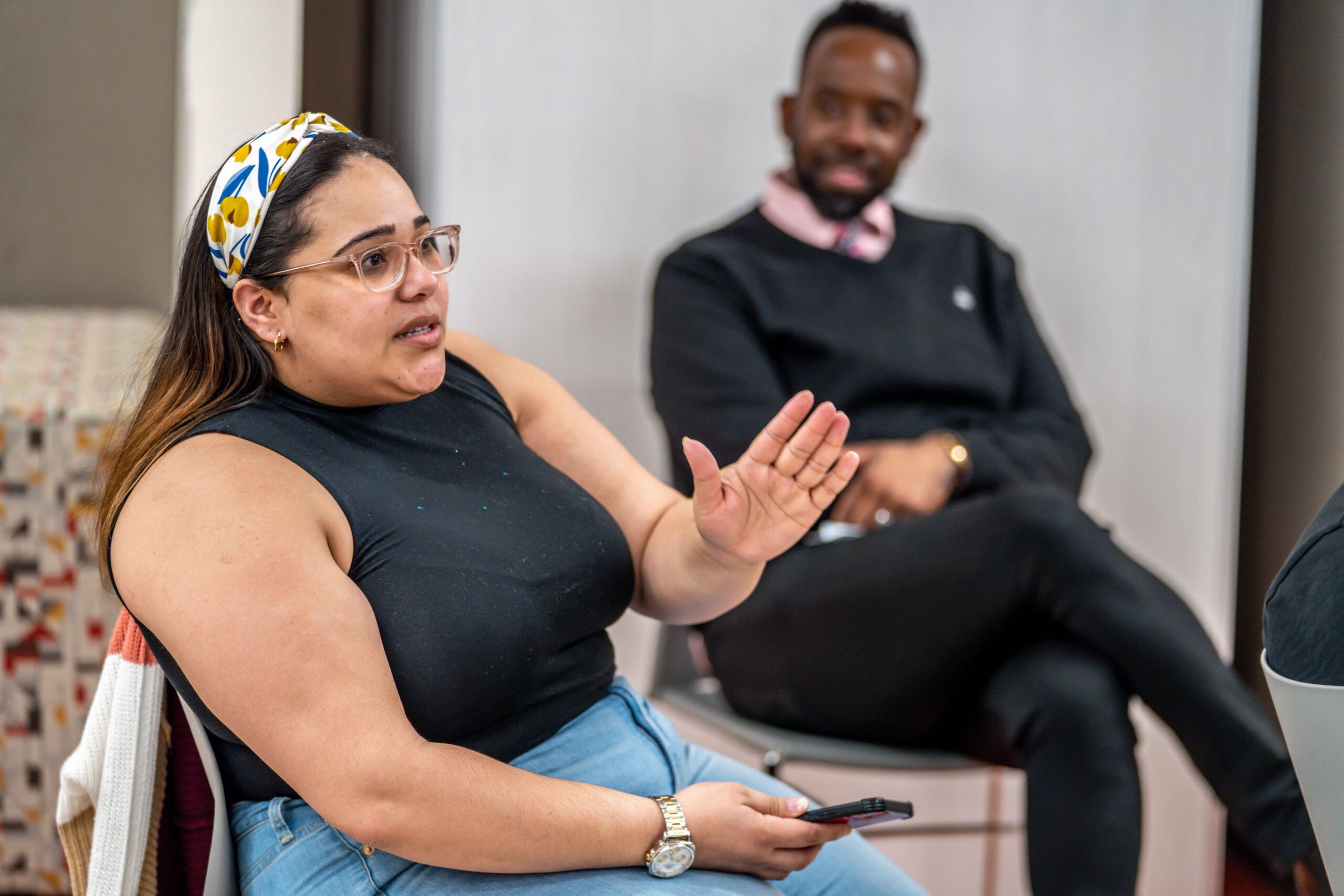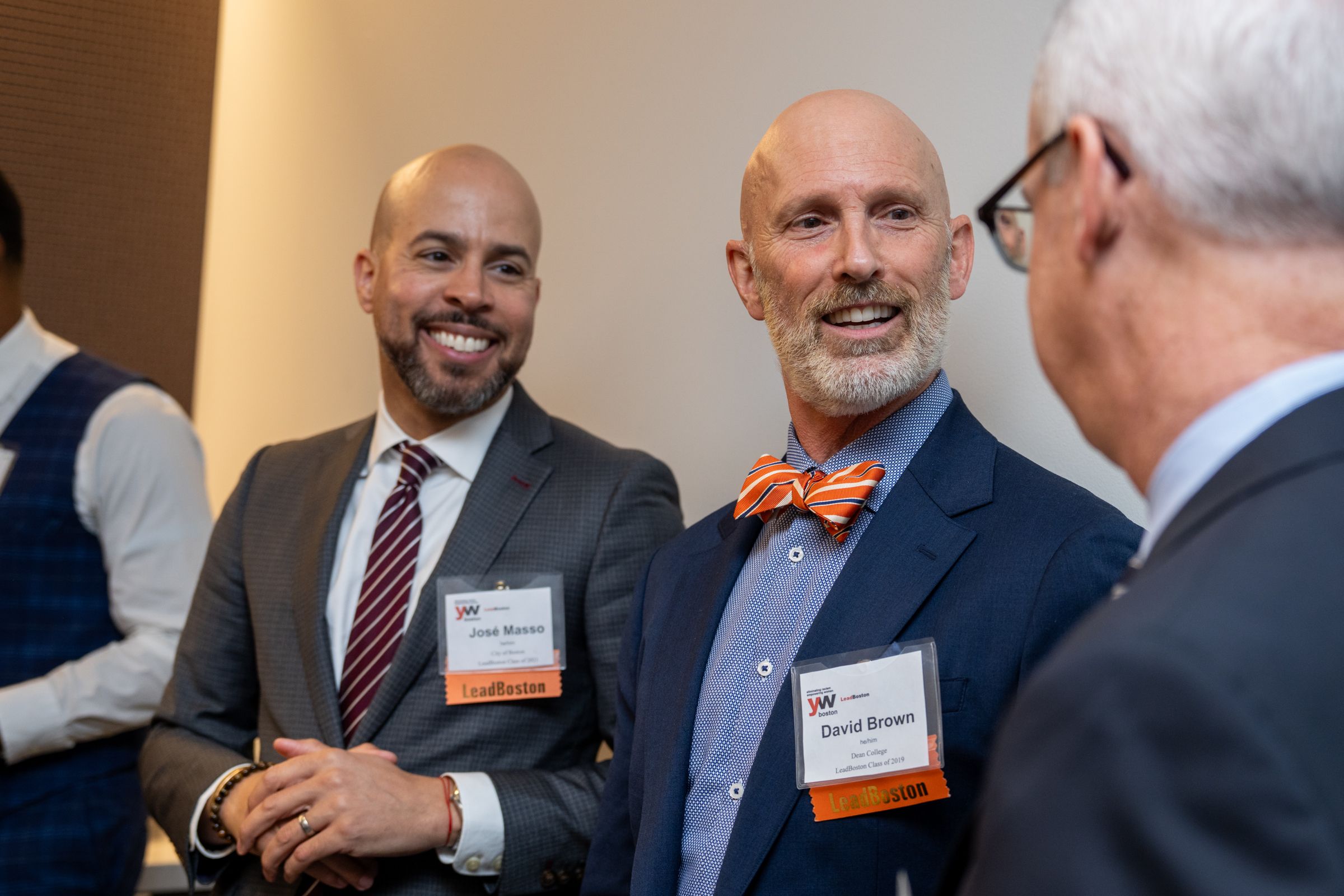LeadBoston
Boston’s premiere program for equity-centered leadership
LeadBoston is our premier leadership development program that focuses on empowering mid- to senior-level professionals with the knowledge, skills, and network to propel their leadership and their organization’s success. During this unique, 11-month experiential program, participants explore barriers to inclusion through facilitated dialogue, expert speakers, communication modules, and peer learning, equipping participants with direct insight into key institutions and levers for change, strengthening their skills as leaders committed to advancing equity.

Join the next cohort!
Since 1991, LeadBoston has competitively selected over 1,250 individuals as LeadBoston participants. LeadBostonians typically have 15 to 30 years or more of experience in their field and represent the gamut of Boston’s professional diversity, from finance to law, civil service to nonprofit, and more. Participants are sponsored and financially supported by their employers. LeadBoston is not an introductory workforce training program, and participants are required to have professional experience prior to participation. The deadline to apply for LeadBoston’s 2026 cohort is October 6, 2025.
LeadBoston at-a-glance
What we do during LeadBoston




Listen & learn
Our cohorts meet with policymakers, corporate leaders, and academics.
Experience Boston
We visit Boston’s civic institutions, schools, health centers, corporations, correctional facilities, and neighborhoods.
Build skills
Leaders will learn about inclusive communication skills and how to bring LeadBoston topics and discussions back to their organization.
Drive change
Each leader finishes the program by developing a project to drive equitable change within the participants’ organizations and communities.
How to apply
What our participants gain
Join Our Robust Alumni Network
LeadBoston doesn’t end on the last day of the training. Instead, our alums are invited to stay connected through events, networking, further learning opportunities, and our online community, YWBoston Connect. Here’s how you can remain connected with your class and other alumni:
Looking for more detailed information about LeadBoston?
Download our printable info packet for even more details about LeadBoston, including tuition and program dates.





